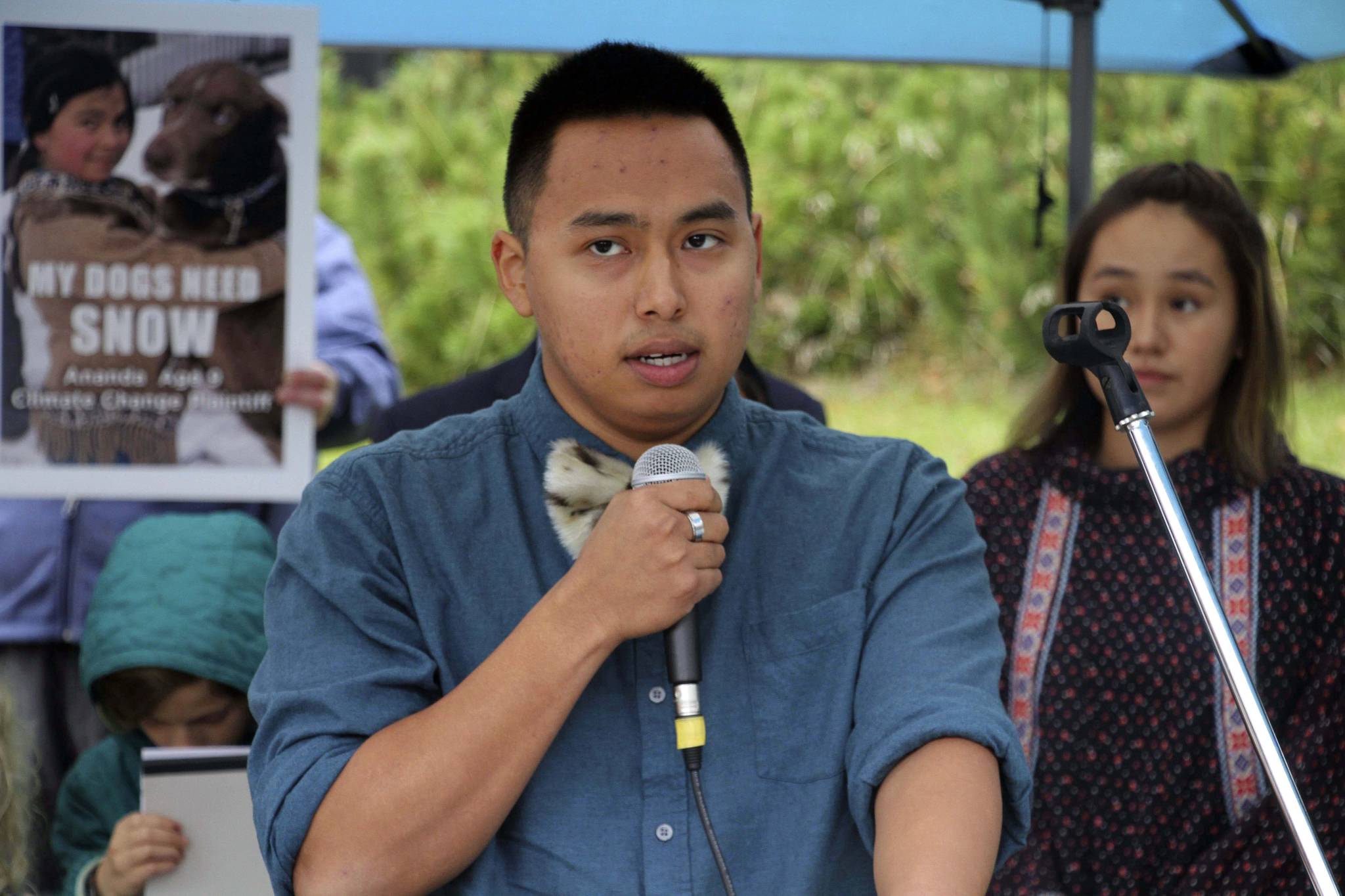Attorneys argued Wednesday over whether a lawsuit that alleges Alaska’s climate and energy policies violate young people’s constitutional rights should go to trial.
Lawyers on both sides of Sinnok v. Alaska made the case for why the lawsuit — that includes two Juneau youths, Seb Kurland and Tasha Elizarde as plaintiffs — should get further consideration after a Superior Court judge in Anchorage dismissed the youths’ claims. Oral arguments were heard by the Alaska Supreme Court in Boney Courthouse in Anchorage.
The Alaska Supreme Court will issue a written decision on that matter at an undetermined date.
[Alaska judge dismisses youth climate lawsuit]
“The merits of the plaintiffs’ case are for a later day, but we’re asking, give them their day in court,” said Andrew Welle, lawyer with Our Children’s Trust, a nonprofit based in Oregon dedicated to protecting the environment, during arguments.
Welle said determining whether Alaska’s energy policies are constitutional is exactly the sort of thing the court should decide, and it’s important a decision is made since climate change actively endangers the young plaintiffs.
He also said the lawsuit is outside the “narrow focus” of political doctrine, which determines whether a question is fundamentally political or legal and something over which a court can exercise legal authority.
“I would submit that it would be unprecedented for this court to rule that a constitutional challenge to a statute is not justiciable,” Welle said.
Attorney Anna Jay of the Alaska Department of Law argued the lawsuit should not go to trial since it was similar to previous unsuccessful lawsuits and would ask the court to weigh-in on a matter that she characterized as outside the judicial branch’s scope.
“The appellants raise important issues, but they are not issues that can be solved by the court,” Jay said.
She said the executive and legislative branches would be the appropriate sources of change in the state’s climate change policy.
Jay said the court lacks the resources to affect that change.
“The court can’t commission scientific studies,” Jay said during arguments. “It’s confined to the record that’s put before it in any given case.”
Justice Peter J. Maassen said he didn’t see why the court would need access to scientific data to make a declaration as to whether Alaskans have a constitutional right to a clean environment.
He also noted rights are rarely absolute.
Jay said lack of a clear definition of what a right to a stable environment means is one of the lawsuit’s weaknesses.
Justice Daniel E. Winfree said in the past the court declared Alaskans have a right to privacy.
“What does that mean?” he asked.
Winfree said it was a definition that gained clarity case by case.
Justice Craig Stowers said there seems to be an inherent tension between the state’s responsibilities to make the most of its resources and provide the most benefit to residents.
“I think that gets to the heart of this case,” Jay said. “Balancing these competing interests that are in tension doesn’t led itself to judicially manageable factors.”
Welle said managing that balance is an issue in every case that challenges the constitutionality of a statute.
• Contact reporter Ben Hohenstatt at (907)523-2243 or bhohenstatt@juneauempire.com. Follow him on Twitter at @BenHohenstatt.

